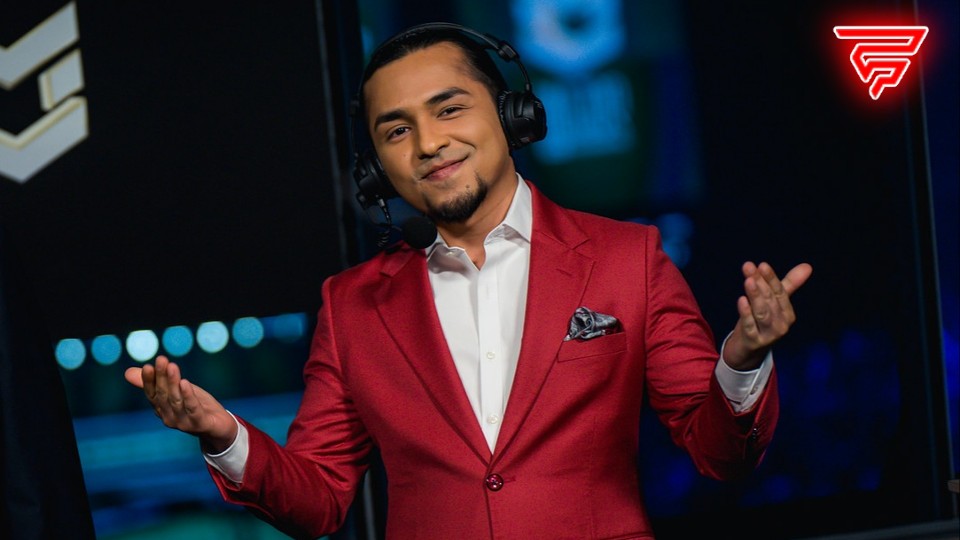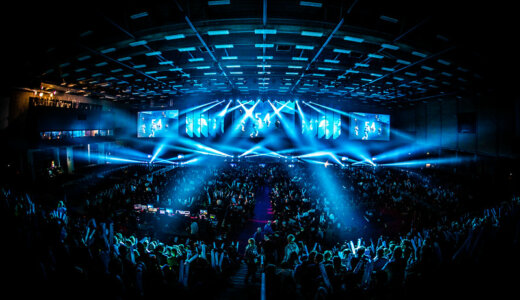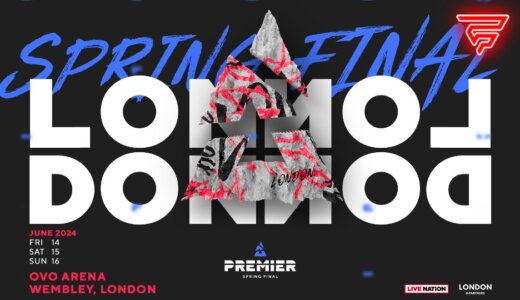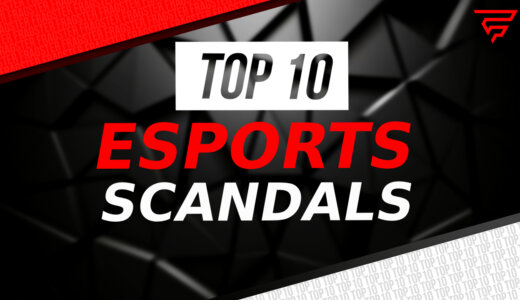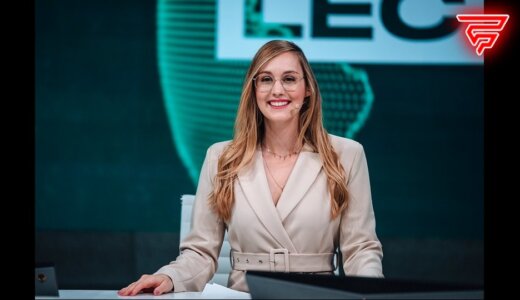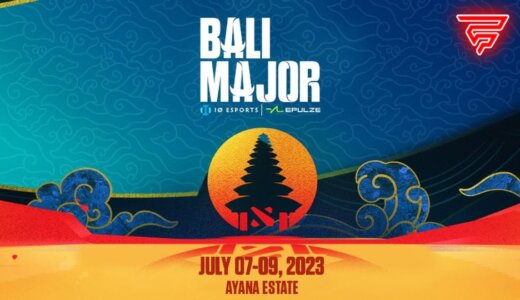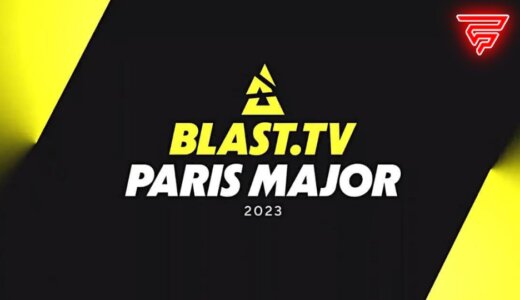Following a long and arduous era of online play, which was precipitated by the COVID-19 pandemic, the world of competitive Counter-Strike: Global Offensive is overseeing its return to in-person tournaments. That means, on top of watching players fulfill their opportunity of playing in the best setting available, events can also enjoy the electric atmosphere that is brought about by an uproarious audience and an equally voracious pool of casters.
Among those who are relishing in pro CS:GO’s comeback is Sudhen “Bleh” Wahengbam, an Indian analyst and commentator who first broke into the scene in the early 2010s as a proponent of his respective local scene. Since then, he became one of the most recognizable talent throughout the game, having covered a litany of LANs ranging from the Far East to the Old Continent.
Though Bleh was able to earn a spot as one of the game’s best talent, he didn’t do so unscathed. A multitude of jobs were accepted so that he could reach such a desired position, highlighting the immense effort he needed to exert throughout his lengthy career.
And it was through this similar diligence that helped Bleh complete his recent schedule which was crowded with consecutive top-tier events. He covered ESL Pro League Season 15, the PGL Major Antwerp, ESL Impact, and Global Esports Tour Dubai all in the space of two months, simultaneously travelling to and from a multitude of countries and showcasing his tenacity as a significant figure in the scene.
Having just finished his latest round of CS:GO events, Bleh sat down with Fragster to discuss his experience working in Dubai, his perspective on reaching success as a CS:GO talent, how he’s maintaining his physical and mental condition at his age, what new talent can learn from old talent, and much more.
If anyone is at the venue here at #GETDubai come say hi! pic.twitter.com/lzmcRLwfj7
— Bleh (@OfficialBleh) June 10, 2022
Pedro Romero: Thanks for doing this interview at this time, Bleh. You just came back from working the Global Esports Tour event in Dubai, which happened on top of gigs for ESL Impact and the PGL Antwerp Major, so how has this experience been so far considering your busy schedule in recent months?
Bleh: It’s been different, I won’t lie, because even though I started doing this a while ago, it was only in 2018-19 when I started working on international LANs. But even then, it was spread out quite reasonably where I’d have a couple of months of travelling for events and a little bit of off time in between. That kind of changed during the pandemic when everything was moved online. But with COVID quieting down since late last year, the scene has shifted into fifth gear when it comes to LAN events.
For me, the period from February has been intense. For the past 120 days, I think I’ve been home 25 times, so it has been a bit of a wild ride.
It can be tricky to centre yourself because you lose track of everything. You’re just going from event to event, working from big, to small, to medium-sized events and then to another big one, and you can get lost in the flow of things. As great as it is doing the thing I love full-time, I have a more centred outlook on this where I’m able to mentally occupy myself by working out and maintaining my hobbies. I won’t lie, it has been a little stressful and hectic, but at the same time, it hasn’t been as nasty as I thought it might be compared to how I hypothesized about it a few years ago.
I want to focus on working in Dubai. It’s one of the first significant CS:GO events to have taken place in the Middle East, so how do you make of the experience in working with your colleagues in such a distinct area of the world.
The last time I did an event in the Middle East was in Abu Dhabi in December 2018, which didn’t go well since it was not really managed properly. Coming to this event, it was a completely different thing — different city, tournament organizer, and the teams coming in. I thought I might as well just give it a shot. I was working with vENdetta (Halvol Gulestøl), who was also the same person I worked with back then and we were both like: “You know what? Let’s just give it a shot, see how it goes,” and surprisingly, it was very well-handled.

Halvol “vENdetta”Gulestøl (left) and Sudhen “Bleh” Wahengbam (right). Credit: Bleh/Twitter
Overall, Dubai was great. I think it is a very fun city to visit. There was also a pretty decent number of people who showed up, considering that it happened during midterms for a majority of schools in Dubai. Also, there wasn’t too much noise made about the event. No crazy marketing push. It was more like a test event by the company who ran it, but looking at the pretty decent turnout in the final couple of days, it was a pretty good event for me to round off this half of the year.
Has Bleh “made it” in CS:GO?
You previously mentioned how, for someone who has been so attached to the CS:GO scene, you were trying to work in international LANs and branching out of your original base in Indian/ Asian CS. But in recent years, you have been able to take part in more prominent events in relation to what you’ve done in the past. With that in consideration, do you feel as though you’ve finally made it in the scene?
I’m sure everyone has a different definition of making it in this scene, but for me, the year when I truly felt like I made it was in 2018, when I was able to work in CS full-fledged and full-time. I wasn’t doing as big events back then. I was primarily working the DreamHack Opens, which is what everyone did. Almost everyone who made it to Tier-1, including the majority of the casters who did the recent Major, went through that entire DreamHack Open grind.
That was around the time I did quite a number of these international events, so I was like: “Okay, I can probably try doing this full-time.”
I guess when it comes to establishing myself as a Tier-1 talent, at this point I could say that I made it, having done two Majors and my first IEM Katowice event primarily as an analyst. I think it was around late last year and earlier this year where I could have sat down and be like: “Okay, it took a while but you made it.”

Bleh at the PGL Major Antwerp 2022. Credit: Bleh/Twitter
In regards to your growing presence in the CSGO scene, there has surely been a gradual rise in expectations from your work as a caster and analyst in prominent events. As time passes, do you feel this sense of growing pressure to reach and match the standards you built throughout your career?
When you grow from tier to tier, there will always be an increase in the level of expectations and also a certain pushback. I believe that this is something almost everyone has experienced and will continue to experience. Also, when you step out of your comfort zone, there will always be people who are not comfortable with that. People will have pigeonholed you as: “This guy is good at this particular role. Why is he doing something else?” Of course, there’ll be people who will support you, but there also will be others who will push back against you, and the bigger events you work and the more known you get, there will be more eyes on you. That goes without saying, right?
That's it from me at the Major. I hope I did it justice. Now time to sit back, grab a cold one and watch an epic Grand Finals as a fan!#PGLMajor pic.twitter.com/qlzdI7kMbB
— Bleh (@OfficialBleh) May 22, 2022
When I established myself in the CS:GO scene, I was primarily working on the desk as an analyst. My first Major was done as an analyst. All the biggest S-tier events I have done, from IEMs to Pro Leagues, have been on the analyst desk. Initially, the only pushback was like: “He’s the Asian CS guy. Why is he doing international events?” Eventually, once people accepted me, they’d be like: “Alright, he’s good at doing international gigs. He has established himself,” but when they’d find me doing color commentary, there’d be plenty of surprised people saying: “Why is he casting? He doesn’t belong there.” I’m not saying I necessarily did the best job since my specialty comes from working at the desk, but at least I actually started branching out.
I did a mix of play-by-play and color commentary in 2013-15 before I got on the desk, so it’s more about trying my hand at different things and not getting complacent in one position. When you try doing something new, you’re going to be held up to the level of the best we have in the business. There will always be pressure and people keeping you pigeonholed, but you can’t let that stop you. If that was the case, we wouldn’t have Machine becoming one of the best play-by-plays, considering he was one of the best desk hosts. We wouldn’t have Sponge becoming one of the best color commentators ever, had he remained on the desk. There will always be pressure.. Just hold yourself up to your expectations and to your standards and I think that’s the best anyone can do.
Sustaining a healthy lifestyle
You touched upon focusing on self-improvement as an analyst/caster, thus helping you stay afloat physically as time marches on. Have you been experiencing an increase in physical strength as you continue to work more events?
Absolutely 100 percent. *laughs* That is something I have struggled with. I’m going to turn 35 in a few weeks, and for better or for worse, I got into pursuing esports as a career rather later in my life. I was working in a different sphere altogether, even though I’ve been following esports, and CS in particular, for 20 years at this point.
That being the case, although the spirit is willing, the body just refuses at times. Once upon a time during some events, it used to be a vacation/work thing. I get to work on CS while hanging out with really cool people. You go out every night, drink, and have a good time. We could sustain it, but as you do more events, you realize that it’s just not sustainable in any way whatsoever. So now I’m more restrained when it comes to going out. I obviously enjoy hanging out with the people I work with, but the good balance I’m trying to find is by going to the gym as often as possible and taking breaks to read books, which has helped me approach this in a sustainable way. Because if I don’t, I’m certainly going to be burnt out by the end of the year.
Double gym quote Wednesday.
"With great gains come great crosshair placement" – Neil Armstrong
"How will you hard carry your team with a weak ass back?" – Charles Darwin pic.twitter.com/ZYJ7MEGP6M
— Bleh (@OfficialBleh) April 6, 2022
You mentioned the mental side of this overall strain that corresponds to working many events at a time. This goes in line with other esports casters experiencing similar difficulties and how they imposed a sabbatical to recover. What do you think about this growing attention of casters taking more breaks to physically recharge after previously accepting an inordinate amount of gigs in the past?
I think it comes from the nature of CS, which is what I know best. The thing is if you look at other esports such as League of Legends and the Overwatch League (when that was a thing), if you work for a publisher, you’d be doing so in a studio. You’d work in one location and travel around while working for one employer, so it becomes easier for you to have a life around your job. That’s something CS never had because of the nature of the industry where there are different TOs and different relationships casters have with all of them.
Both have pros and cons. Talking about pros, I prefer the open nature of CS circuits. It’s more organic and contains opportunities also for newcomers. There is no monopoly which can make or break your career. However, because of its highly competitive nature, there is always the fear where people are like: “If I don’t say yes, someone else is going to do it and I won’t get the next one.”
Finally going home for a bit of a break after almost 4 months on the road. Intense rest and recuperation incoming. Gonna relax so hard. So hard. pic.twitter.com/rKt7ASiZtc
— Bleh (@OfficialBleh) June 12, 2022
When it comes to past CS circuits, there have been people who went for that crazy grind and then took a break for their mental and physical sanity. Whoever takes a sabbatical now I support them 100%. This is an industry that can easily burn you out because, at least in CS and a few other esports, you’re literally travelling all the time. Of course, it is centred around Europe nowadays, but it’s not just one country and one studio. Not only that, but you’ll also work an event such as the one in Dubai or the Major happening in Brazil very soon.
Unless you’re at the apex, it’s hard for people to reject opportunities because there’s always going to be someone else who’s going to take it. It can be a wild circus and no matter how great it is, it’s physically impossible for anyone to maintain that regimen because it completely precludes you from maintaining healthy wellbeing. It can make you a slave to the grind where you forget about living your life and allow it to become the entirety of your existence. It’s a good thing people take sabbaticals and learn how to say no sometimes. It’s easier said than done though. If I told myself that same advice in the past, I would still accept everything that comes my way. It depends on the person but I do believe people should be more aware to recognize the warning signs of fatigue.
What the new blood of CS:GO talent can learn from the old guard
As someone who started at a pretty early time in CS:GO, you have seen many talent come and go. What factors can this latest generation of casters and talent, that are coming into the scene and trying to make a name for themselves, take away from those of your era?
Well, I’m not as super old school, right? You had people like Anders (Anders Blume), Semmler (Auguste Massonnat), Joe Miller, TosspoT (Stuart Saw), Redeye (Paul Chaloner), and moses (Jason O’Toole) who were there before I even considered this as a career option or a hobby. Some advice I can give would be to take it easy on yourself. Don’t burn yourself out. The second would be —here’s the thing— almost every talent are competing with each other. I think that goes without saying even though no one really says it out loud. We’re all competing for a limited number of gigs available, but at the same time, most of us are very good friends, even more than colleagues.

Credit: Bleh/Twitter
I have heard rumblings from other esports titles where the talent doesn’t get along and that prevents the entire scene from growing further. I feel that CS in general is a much healthier scene and has much more camaraderie. It’s more “watching out for each other” and I think a lot of the young guys do that. It was certainly present in the old guard during those “wild days.” They were the ones who set the bar and helped everyone establish themselves. I didn’t even know how much I should be charging at one point until I had a chat with some of the old guys.
People like Anders and moses were helpful to me back in 2015 when I was starting out and I think that is something everyone should do. I try to do that with new talent at the very least. It could be about rates or negotiating with other talent but I think the main takeaway for me, when it comes to giving advice to the newer guys, would be just to remember that you’re all in the circus together and it’s best to watch out for each other.
Among the batch of new casters coming into the scene in recent years, who do you think best resembles your style of work?
I think one of the newer ones I get along with would be Mauisnake (Alex Ellenberg) because I always approach the desk as a combination of entertainment and education. I try to be entertaining by cracking jokes or creating banter while trying to talk about CS at the same time. I also think Maui is someone I really identify with and through he brings to the table. He’s really funny, great at having fun on the desk, has a sharp eye for the game, and brings his own unique style to it. When I worked with him in Pro League for about a month, we really got along and I think I did some of my best work on the desk with him.
bleh: will NA win tomorrow??
me: 🇺🇸🇺🇸🇺🇸🙃 pic.twitter.com/35Vuw3por4— Mauisnake (@Mauisnake) April 3, 2022
Header: PGL
